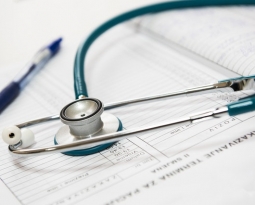Four Signs It Is Time To See A Vein Specialist
Blood circulation is one of the biological activities that keep us alive. Blood must move from the heart around the body and back to the heart. To transport the blood around the body, arteries and veins are needed. Arteries are the blood vessels that take the blood from the heart to the cells, while veins return the blood from the body cells to the heart. The blood in each of these vessels must move in a particular direction – arteries take blood away from the heart, and veins take the blood back to the heart. To ensure this, the veins are equipped with valves that permit only one-way flow. However, it is not uncommon for the valves in the veins to malfunction, hence preventing blood from returning to the heart. This condition leads to vein disease.
There are many ways in which a vein disease can manifest. It could be visible as varicose veins, can lead to discoloration of the skin, or just cause itching of the limbs. The question is, when should you begin to worry? What are the signs that you must see to know that it is time to see a vein specialist?
When Your Veins Become Dilated, Discolored, And Can Be Clearly Seen
Discolored, dilated, and visible veins are varicose or spider veins. They are usually found at the leg and affect about 30 percent of the population. Varicose veins are enlarged veins that are typically caused when the blood fails to flow upward but rather accumulates in the veins. This will cause the affected veins to enlarge to the extent of being clearly visible.
Varicose or spider veins are generally not risky to health, except that they are not pleasant to the eyes. No one wants a discolored leg. But in some cases, varicose veins can get worse to the extent of causing severe discomfort. You may experience pains, itching, dryness, or even a burning sensation. However, you don’t have to wait till that stage before visiting your vein specialist.
Also, varicose or spider veins might be an indication of more serious vein disease. Hence, when you notice a varicose vein, schedule an appointment with a vein specialist to have your veins examined. The earlier you start treating your condition, the more effective the treatment will be.
One Leg Is Paining You, And The Other Is Fine
If you walk or run a long distance, the burden will surely be on both legs equally. But when you start feeling pains in only one leg, you know something other than your physical activity is responsible. Also, if one leg becomes swollen and the other leg remains normal, then you should know that it is time to check your legs for vein disease. Joint problems can cause pains in the leg, but without any known injury to the joint, another reason you could have leg pain is poor blood circulation.
Poor blood circulation in your leg can also cause swelling of the leg. Therefore, except you have an injury in one leg, if you notice a significant difference in the conditions of one of your legs compared to the other, you must visit a vein doctor to check your veins and confirm if your blood circulation is perfect. If you are fine, remember, there is no harm in checking. However, if there is a problem, the earlier you detect that, the better.
If Your Leg Is Feeling Heavy At The End Of The Day
Standing or sitting at one spot for a long time may lead to heaviness or weakness of the leg. Some people may not even be able to move the leg for some time. However, for many people, standing or sitting for a prolonged period does not affect their legs. If you feel the heaviness of the leg occasionally, there might not be any cause for alarm, but if it occurs frequently, then you should be worried. Blockage of the vein or malfunctioning of the vein valve may prevent blood from flowing away from your leg towards the heart. This will make the blood accumulate in your leg. This improper circulation of blood may be the cause of your leg’s weakness or heaviness. Varicose veins can also cause this condition.
Even though there could be other causes, it is better to be sure it is not caused by a vein problem. Therefore, if your leg weakness is frequently occurring, you should know that it is time to visit your vein specialist. If you delay, it may lead to a more severe condition like a large varicose vein and leg ulcer.
Your Leg’s Wound Refuses To Heal
An ulcer is a condition in which an open wound or sore refused to heal. It could occur internally or externally. This usually occurs when blood refuses to flow properly. It is regarded as a venous stasis ulcer if it occurs in the leg. Although diabetes mellitus is the most common cause of failure of sore to heal, however, poor circulation can also be responsible for a leg ulcer. Therefore if you notice that your open wound had remained for too long, visit a vein specialist to check if a circulatory problem is responsible or not.
Act Now
Vein disease in many people is usually mild to moderate. However, in some, it is severe. The good news is that vein disease can be treated. Therefore, before your case become severe, it would be best to schedule an appointment with an expert, get your vein examined, and start treatment.
We Can Help You
We specialized in treating all forms of vein disease. Whatever the cause and the degree of severity, our professional vein experts can diagnose and treat it. Our team consists of top experts who have many years of experience treating problems with veins and blood circulation. Therefore, do not delay. If you notice any of the signs explained above, schedule an appointment with us, and we will be happy to assist you.
Summary
Many people are suffering from one form of vein disease or the other. Some people observe the symptoms at the early stage of the disease, while some are not aware of their conditions until it has become serious. However, in most cases, symptoms are always there from the onset of the disease, only that the patient fails to notice it. That is why it is vital to know the signs to watch out for to know when to visit a vein specialist. Among the early signs of vein disease to look out for is pains or swelling that occurs in one leg but does not affect the other leg.
Another indication of vein problem is the appearance of dilated veins which may also cause skin discoloration. Also, if your leg is feeling weak or heavy when you sit or stand at a point for a long time, you may have vein disease. Leg ulcer, which usually occurs as an open wound or sore that refuses to heal, can also be an indication of a vein problem. If you notice any of the listed symptoms, then it is high time you scheduled an appointment with our expert vein specialists.








